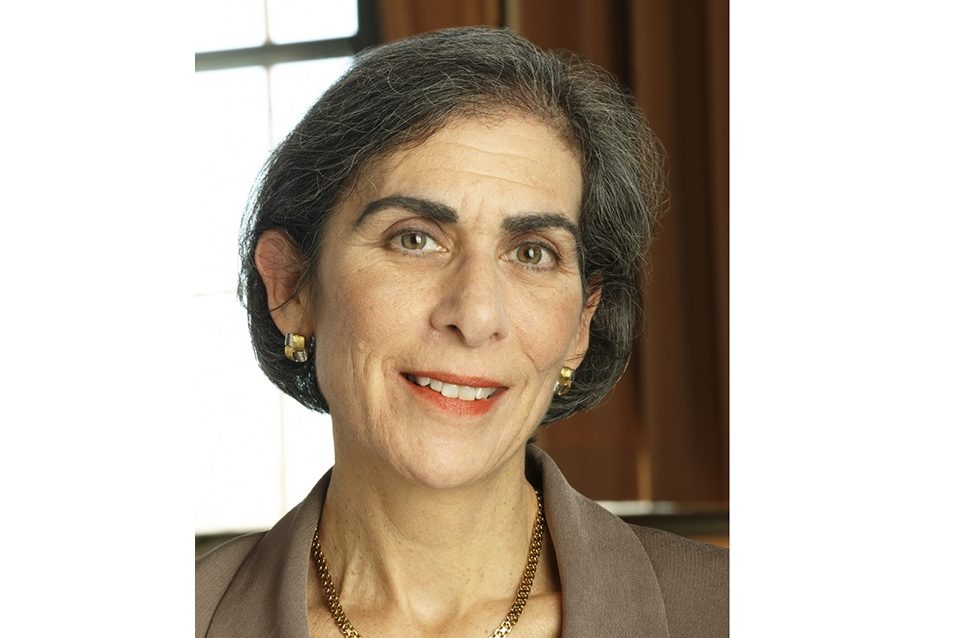Spectator TV viewers may recall that in last week’s Americano podcast, Freddy Gray interviewed the University of Pennsylvania law professor Amy Wax, whose wrist had just been smartly rapped by the administration for her unfashionable generalizations about race and sex. While Professor Wax spoke ably on her own behalf, Amy, as I know her, has been a friend of mine for several years. These scolding financial and reputational sanctions have been in the works for almost as long, so now seems an apt juncture at which to lay down my own marker. Unlike so many of her half-hearted defenders, I’ll put myself firmly in her corner without holding my nose.
Introducing students studying conservatism to the right-wing fringe is hardly to endorse that fringe
By contrast, John McWhorter, a courageously moderate black independent thinker before he was lured into the role of demi-woke pleaser at the New York Times, is (or at least was) also a friend of Amy’s, though last week he had a funny way of demonstrating his loyalty. Slamming her views for most of his column (the headline on his piece called them “outrageous,” “demeaning” and “dangerous”), McWhorter finally rounded on the verdict that this fish-out-of-water conservative in a tank of progressive piranhas didn’t deserve to be formally punished. So far, for centrists commenting on her case, this has been the form: reams of denunciation and distaste, followed by a begrudging espousal of free speech. The Bulwark, a US conservative opinion website, conceded that protecting academic freedom entails defending the expression of “odious views without sugarcoating their odiousness.”
I’ve friends who don’t share my politics, and I suppose I’d prefer they at least defend my right to free speech come what may. Yet in the perfect world I’d opt for advocates who didn’t feel obliged to slam my “loathsome opinions” (Bulwark) and “views that most reasonable people find repellent” (McWhorter) beforehand. I’m sure if we dug deep, Amy and I would find points of disagreement, and I’d characterize a few of her isolated remarks as injudicious. But standing up for a writer and award-winning teacher by claiming that just because her convictions are morally repugnant doesn’t mean she should be imprisoned or fired seems pretty thin gruel in the friendship department.
So I’ll make a stab at sticking up not just for Amy’s rights but for her conduct. She has particularly got it in the neck for pointing out that black students who perform in the top quarter or even top half of her classes have been vanishingly rare. McWhorter asserts that this observation “inflame[s] a pernicious view” that “universities are fundamentally racist spaces.” But Amy was making a statistical point. The number of black students who distinguish themselves in Penn Law classes is a fact, and facts cannot be racist. However horrified the administration has been by Amy’s pointing out the inconveniently small proportion of black law students who excel academically, these same authorities have staunchly refused to release the statistics on this point to prove Amy factually wrong.
Moreover, when a selective university insists on using arithmetically lower admission standards for minorities, it’s almost inevitable that these students will underperform in class, because standardized test scores are the best predictor of future academic performance. That’s why Amy has repeatedly observed that affirmative action injures the very people the leg-up is meant to help. These same students might thrive at a slightly less selective institution. Note, too, that grading at Penn Law is blind, so no one could accuse Amy Wax of grading her minority students unfairly.
As for Amy’s bringing in Jared Taylor, the founder of American Renaissance, to speak to her class on conservative thought, I know little about this outfit. Maybe in this political moment any organization defending the interests of Americans of European descent is necessarily “white supremacist.” But introducing students studying conservatism to the right-wing fringe is hardly to endorse that fringe but to expose it to interrogation. In higher education, ideas don’t require the quarantine of communicable disease.
Amy also mortified the bien pensant by proposing that “anti-racist” activists are partially driven by resentment and shame over the “outsized achievements and contributions” of western civilization. Incendiary? Sure. Utterly preposterous? Maybe not. The extraordinary artistic, architectural, scientific, medical and technological advancements made for the whole human race by the West do seem to be the source of some embarrassment for white progressives. But those achievements, which most westerners merely inherited like everyone else, call us all to gratitude rather than hubris.
Amy champions the traditional western values that lately we so roundly traduce. In an earlier era, advocating for family, merit, marriage, personal responsibility, social cohesion and patriotism would have been conformist, dumpy and mainstream. Now commentators like Amy Wax are important correctives to a corrosively self-hating and self-destructive orthodoxy.
As a person, Amy is droll, dry and caustic. Her most common facial expression is the eye roll. While she doesn’t seek purposefully to offend, she never stifles a thought for being provocative. She can easily be mistaken for abrasive, because she avoids the protective hedging (“Of course, slavery is an indelible stain on American history…”) that’s become so boringly obligatory before advancing even slightly controversial ideas. She rarely looks before she leaps. In interviews, she clearly says whatever comes into her head, though spontaneity in the present climate can be fatal. Arguably persecuted, she never indulges self-pity. She’s fearless in an era when, for a lone conservative amid a universally progressive faculty, there’s a great deal to fear. She’s a rare commentator insistent that the would-be sacred value of diversity compete with the ideals of truth, honesty, functionality and colorblind justice. Accepting a more financially punitive sanction, she’s refused to sign a nondisclosure agreement, thus remaining free to speak her mind about this case in public.
She’s a rash throwback to a time — not so long ago, but it sure seems that way — when you could toss out ideas in conversation for the fun of it, the more daring the better. In other words, Amy Wax is a lot like yours truly, and there may come a time she writes her own column sticking up for me.
This article was originally published in The Spectator’s UK magazine. Subscribe to the World edition here.

























